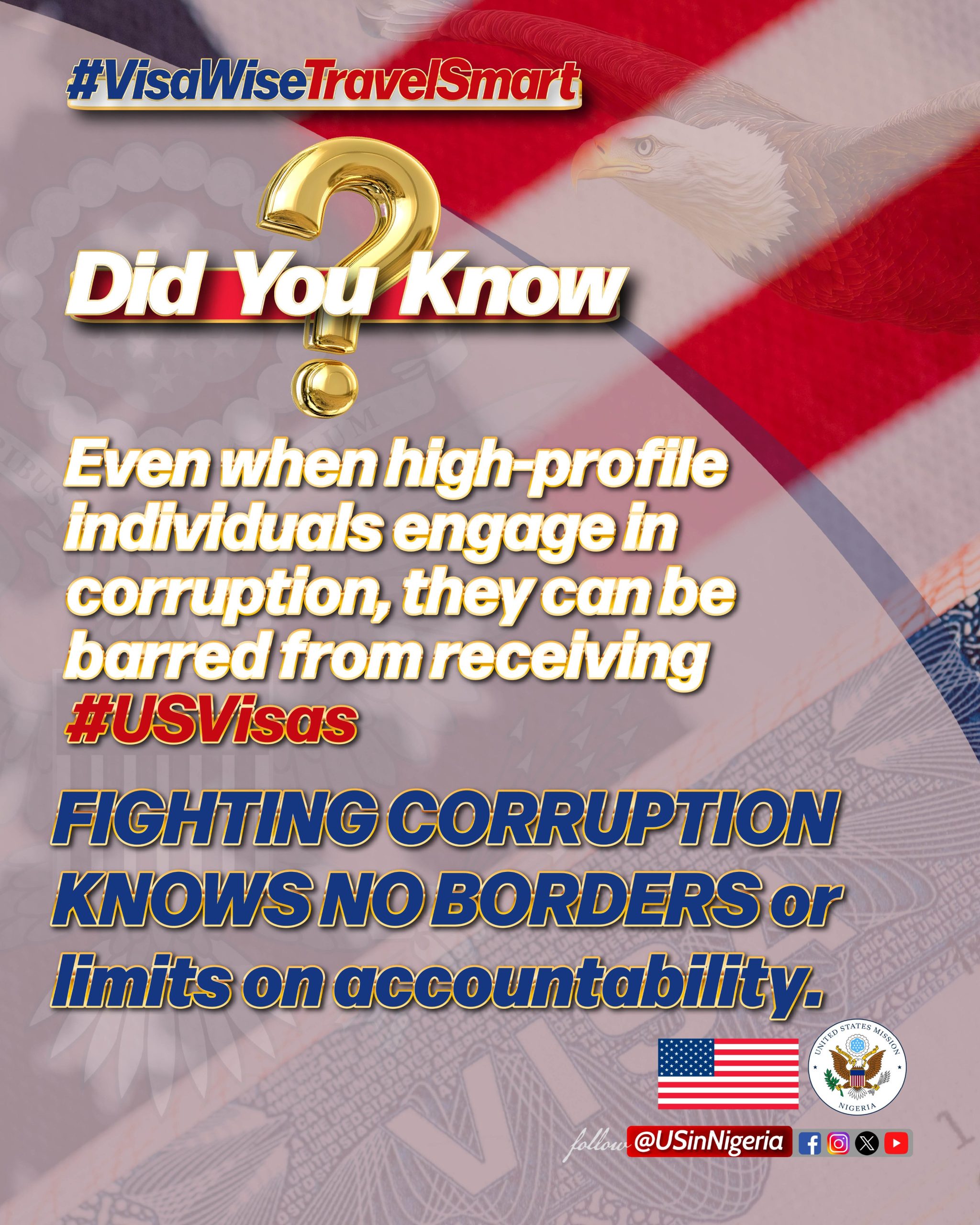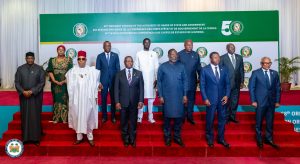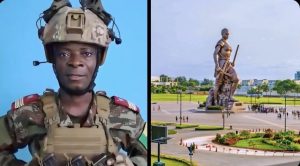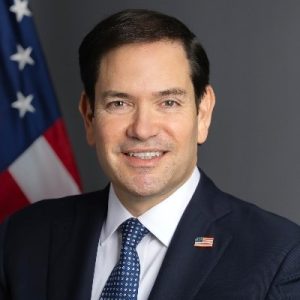Abuja, 22 September 2025 – The United States Mission in Nigeria has reiterated its commitment to combating corruption, stating that even prominent individuals involved in such activities could be denied US visas. This declaration comes amid fresh allegations against Nigeria’s Minister of the Federal Capital Territory (FCT), Nyesom Wike, who has been accused of money laundering and acquiring properties in the US with illicit funds.
In a post on X (formerly Twitter), the US Mission emphasised the borderless nature of anti-corruption efforts. “Fighting corruption knows no borders or limits on accountability. Even when high-profile individuals engage in corruption, they can be barred from receiving U.S. Visas,” the statement read. The message, accompanied by an image highlighting visa restrictions, underscores Washington’s ongoing policy of imposing visa sanctions on those implicated in corruption, including their family members.
The timing of the US Mission’s warning has sparked speculation, as it coincides with a petition filed by Nigerian activist and publisher Omoyele Sowore. Sowore, a prominent critic of the government and former presidential candidate for the African Action Congress (AAC), submitted a formal complaint to Florida’s Attorney General, James Uthmeier, on 22 September. The petition accuses Mr Wike of laundering public funds to purchase multimillion-dollar properties in Florida, including a $6 million mansion.
According to the document, Mr Wike allegedly failed to declare these assets to Nigeria’s Code of Conduct Bureau, violating local laws. Sowore’s petition invokes US statutes such as the Florida Money Laundering Act and calls for an investigation, potential forfeiture of the properties, and prosecution. It further urges Florida authorities to seize the assets, arguing they were acquired through corrupt means during Mr Wike’s tenure as Governor of Rivers State.
Several Nigerian media outlets have linked the US Mission’s statement directly to Sowore’s action, suggesting it serves as a pointed reminder to corrupt officials. “No visa for corrupt Nigerian officials,” warned one report, highlighting the potential for visa revocations even for those already holding them.
This is not the first time the US has targeted Nigerian figures with visa restrictions. In recent years, Washington has imposed bans on individuals accused of undermining democratic processes or engaging in graft, often extending to their immediate families. The policy aligns with broader American efforts to promote transparency and accountability globally.
Mr Wike, a key ally of President Bola Tinubu and a former governor known for his controversial political style, has not yet publicly responded to the allegations. Attempts to reach his office for comment were unsuccessful at the time of writing.
Sowore, who has a history of activism including leading the #RevolutionNow movement, has previously petitioned US authorities over similar issues. In an earlier instance, the AAC called for visa bans on Mr Wike for alleged corruption. This latest development could escalate tensions between Nigerian officials and international watchdogs.
As investigations potentially unfold, the US Mission’s message serves as a stark warning: corruption carries consequences that transcend national boundaries. For high-profile Nigerians, this could mean not only legal scrutiny at home but also restricted access to one of the world’s most sought-after destinations.






